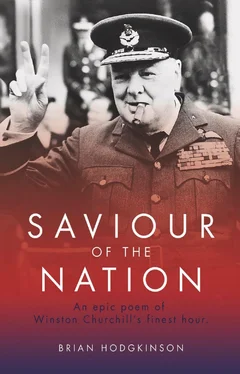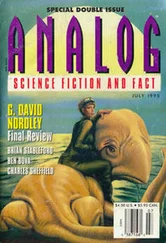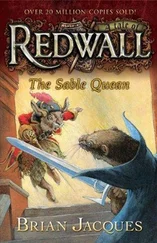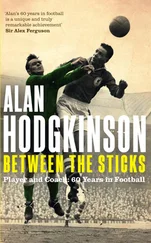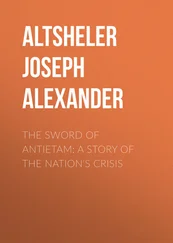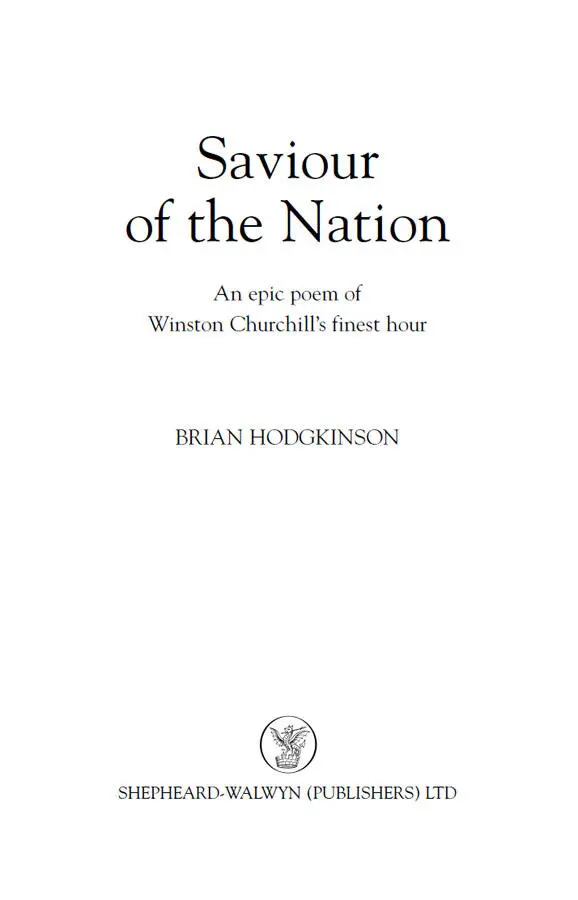
Other books by Brian Hodgkinson
| Bhagavad Gita (verse translation) |
2003 |
| The Essence of Vedanta |
2006 |
| A New Model of the Economy |
2008 |
| In Search of Truth |
2010 |
| Sonnets |
2012 |
| King Alfred the Great |
2014 |
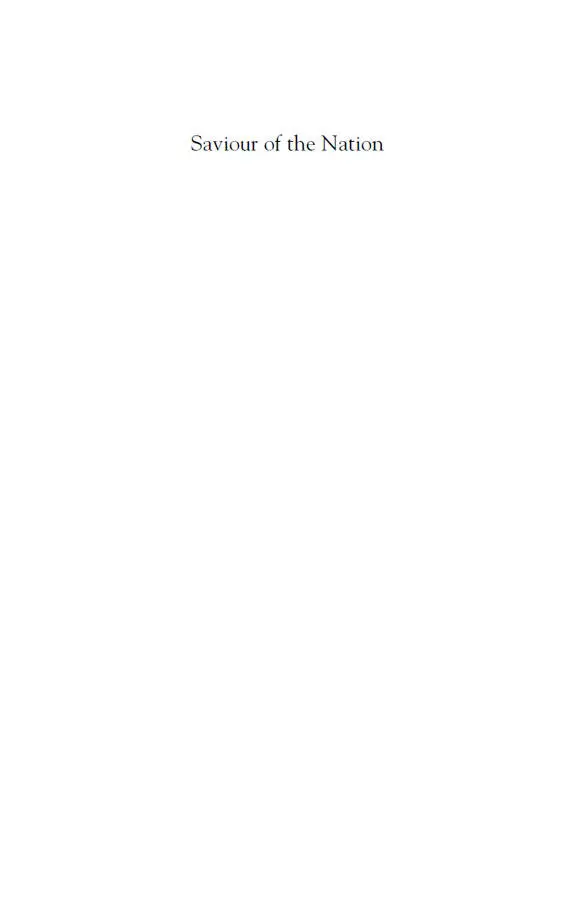
© Brian James Hodgkinson 2015
All rights reserved. No part of this book may be reproduced in any form without the written permission of the publisher, Shepheard-Walwyn (Publishers) Ltd
www.shepheard-walwyn.co.uk
First published in 2015 by
Shepheard-Walwyn (Publishers) Ltd
107 Parkway House, Sheen Lane,
London SW14 8LS
www.shepheard-walwyn.co.uk
British Library Cataloguing in Publication Data
A catalogue record of this book
is available from the British Library
ISBN: 978-0-85683-506-3
Typeset by Alacrity, Chesterfield, Sandford, Somerset
Printed and bound in the United Kingdom
by imprint digital .com
Preface Preface Winston Churchill was the greatest Englishman of the twentieth century, and perhaps the greatest of all time. * His life was immensely rich and varied, for he excelled in the fields of politics, war, statesmanship and literature. Yet his crowning achievement was, without question, his leadership of Britain and the British Empire and Commonwealth during the Second World War. Even within that, his supreme qualities of courage, resolution and inspiring oratory were concentrated in the period from the outbreak of war in 1939 until the entry of the USA into the war in December 1941. Hence any literary work that tries to capture the essence of the man needs to focus likewise on this relatively short period when Britain fought for its survival against Nazi Germany. Especially is this so when the literary form is narrative poetry, where facts and historical detail are secondary to emotional intensity. As far as possible, I have adhered to recorded history within the limitations of the principal sources used and my own recollection of wider reading over many years. However, the selection of facts has been influenced by the overall demand for dramatic impact. In particular the direct speeches made by Churchill in the poem are no more than paraphrases with a few words taken from what he actually said. This is necessitated by the need to avoid actual quotation, but especially by the demands of conciseness and metre. Personally I do not believe that Churchill himself would have objected to any attempt, however inadequate, to portray him as an epic hero. * In 2002 he was named as the greatest Briton of all time in a nation-wide poll conducted by the BBC, attracting more than a million votes.
1 The Menace of Nazi Germany
2 The Prophet Unheeded
3 Office Denied
4 Appeasement
5 Dreadnoughts and Dardanelles
6 The Admiralty at War
7 Prime Minister at Last
8 The Battle of France
9 Dunkirk
10 The Agony of France
11 Armistice
12 Tragedy at Mers-el-Kebir
13 The Threat of Invasion
14 The Battle of Britain
15 The Blitz
16 Dakar
17 North African Success
18 Balkan Disaster
19 Nadir
20 Operation Barbarossa
21 The Atlantic Charter
22 Crisis at Moscow
23 The Failure of Crusader
24 Pearl Harbor
Principal Sources
Winston Churchill was the greatest Englishman of the twentieth century, and perhaps the greatest of all time. *His life was immensely rich and varied, for he excelled in the fields of politics, war, statesmanship and literature. Yet his crowning achievement was, without question, his leadership of Britain and the British Empire and Commonwealth during the Second World War. Even within that, his supreme qualities of courage, resolution and inspiring oratory were concentrated in the period from the outbreak of war in 1939 until the entry of the USA into the war in December 1941. Hence any literary work that tries to capture the essence of the man needs to focus likewise on this relatively short period when Britain fought for its survival against Nazi Germany. Especially is this so when the literary form is narrative poetry, where facts and historical detail are secondary to emotional intensity. As far as possible, I have adhered to recorded history within the limitations of the principal sources used and my own recollection of wider reading over many years. However, the selection of facts has been influenced by the overall demand for dramatic impact.
In particular the direct speeches made by Churchill in the poem are no more than paraphrases with a few words taken from what he actually said. This is necessitated by the need to avoid actual quotation, but especially by the demands of conciseness and metre. Personally I do not believe that Churchill himself would have objected to any attempt, however inadequate, to portray him as an epic hero.
*In 2002 he was named as the greatest Briton of all time in a nation-wide poll conducted by the BBC, attracting more than a million votes.
1
The Menace of Nazi Germany
Winter 1933
Throughout the night the drum of marching feet
And flickering light from torches held aloft
Engrossed the streets of many German towns;
Whilst in Berlin the aged President
Saluted from his balcony the troops
Of Sturmabteilung , Stahlhelm and S.S.,
Whose banners rose in white and red and black.
And watching, too, with burning eyes of zeal,
Stood Adolf Hitler, now the Chancellor.
In that great land of prehistoric myth,
Of mighty rivers, darkest forest, lakes,
Of Alpine peaks that cast long shades of night
And bar the way to Bacchus’ revelries,
A deep resentment warped the souls of men.
The lust of Mars, the pride of nationhood,
Abruptly had been shamed. For many years,
The warlike Germans could not carry arms.
Their massive guns, steel-plated battleships,
And marching ranks of millions, bold and loyal,
Obedient to fatherland and king,
Had vanished at the word of armistice.
Thus mortal wounds, inflicted by defeat
And violent insurrection, doomed the State
Which followed on the Versailles settlement.
It was an interregnum for all those
Who smouldered with desire to be avenged.
Some, like Stresemann, tried to quench the fire,
But few would stand by Weimar and the law.
Bruning and Streicher struggled to enforce
Their vain attempts at sweeping compromise,
Till Papen came, a former Chancellor,
To woo the careworn President with hope
That, once in office, Hitler would be bound
By cabinet colleagues, like the Nationalists.
“We’ll box him in!” brave Hugenberg had said,
And few, beyond the Nazis, could believe
That Corporal Hitler, but a demagogue,
Would govern long unruly Germany.
Yet soon he showed his innate ruthlessness.
The violence of his language won support
From all those Germans keen to see destroyed
The Treaty of Versailles, and those who feared
That Jews and Marxists threatened Germany.
He called for new elections, claiming these
Would but confirm his own supremacy.
Читать дальше
